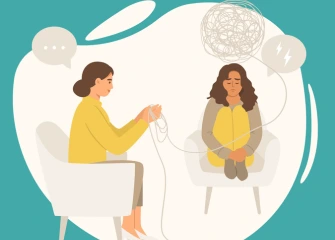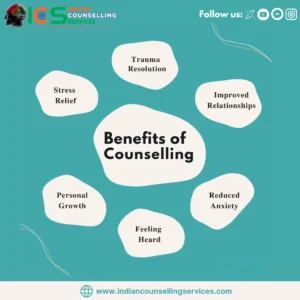
The Transformative Impact of Counseling on Mental Health and Well-Being
In a world where we often prioritize responsibilities over self-care, Mental Health can sometimes be overlooked. Mental Health, Despite growing awareness, the stigma and misunderstandings surrounding counseling prevent many from exploring its benefits. Counseling, however, is a powerful tool for promoting emotional health, personal growth, and resilience. This blog highlights how counseling can positively reshape your mental health and overall quality of life.
Counseling is a collaborative process between a trained professional and an individual seeking guidance. It provides a supportive, confidential space where you can explore your emotions, thoughts, and behaviors. Contrary to the misconception that counseling is only for people in crisis, it is an invaluable resource for anyone aiming to improve their mental clarity, manage stress, or enhance personal relationships.
By addressing challenges ranging from anxiety and stress to grief and self-esteem struggles, counseling empowers individuals to better understand themselves and their circumstances.

1. Gaining Insight and Awareness
Many of us operate on autopilot, unaware of the patterns that influence our emotions and choices. Counseling helps uncover these underlying patterns, providing clarity about what drives your actions and feelings. This self-discovery is a key step in overcoming obstacles and building a more fulfilling life.
2. Developing Emotional Resilience
Emotions can be overwhelming, especially during difficult times. Counselors guide you in understanding and managing these feelings effectively. With tools such as mindfulness exercises and cognitive reframing techniques, you can develop healthier responses to life’s stressors.
3. Strengthening Relationships
Counseling not only fosters a better relationship with yourself but also improves your connections with others. It equips you with communication skills, boundary-setting techniques, and strategies to nurture more supportive and meaningful relationships.
4. Building Healthy Coping Mechanisms
Life’s challenges are inevitable, but how we respond to them can make a significant difference. Through counseling, you learn constructive coping strategies tailored to your unique needs. For instance, therapy might help you replace harmful habits with healthier alternatives or teach you ways to better manage conflict.
5. Processing Past Trauma
Trauma can leave deep emotional scars that affect your present. Counseling provides a safe environment to address unresolved pain. Techniques like trauma-focused therapy or EMDR (Eye Movement Desensitization and Reprocessing) allow you to process and move forward from distressing experiences.
Beyond mental health, counseling contributes to overall well-being by promoting balance in various areas of life.
1. Improved Physical Health
Stress and unresolved emotions often manifest as physical symptoms such as headaches, fatigue, or insomnia. Counseling helps alleviate these symptoms by reducing emotional burdens and encouraging self-care practices that enhance physical health.
2. Boosted Productivity
Mental clarity is a significant outcome of effective counseling. By resolving inner conflicts and developing problem-solving skills, you can make better decisions, stay focused, and feel more productive in both personal and professional spheres.
3. A Renewed Sense of Purpose
Many individuals find counseling helps them reconnect with their passions and values. This renewed perspective inspires a sense of purpose, giving life deeper meaning and direction.
might consider counseling if you:
- Feel persistently sad, anxious, or overwhelmed.
- Struggle with relationships, whether personal or professional.
- Experience difficulty coping with life changes, such as a new job or loss.
- Desire personal growth or a better understanding of yourself.
Recognizing the need for help is a courageous first step, demonstrating a commitment to self-improvement and mental health.
Counseling isn’t a one-size-fits-all solution. Different therapeutic methods address varying needs, ensuring an individualized experience:
- Cognitive-Behavioral Therapy (CBT): Focuses on reframing negative thought patterns.
- Humanistic Therapy: Centers on personal growth and self-acceptance.
- Psychodynamic Therapy: Explores how past experiences shape present behaviors.
- Couples or Family Therapy: Enhances communication and resolves conflicts within relationships.
- Trauma-Focused Therapy: Specializes in processing and healing from traumatic events.
By working with your counselor, you can identify the approach best suited to your goals.
Despite its benefits, some barriers may prevent people from seeking therapy. Addressing these concerns can open the door to transformative experiences.
1. Challenging Stigma
Although mental health awareness is improving, stigma still lingers. Remember that seeking help is a proactive choice, demonstrating strength and self-respect. The more openly we discuss mental health, the more we normalize seeking support.
2. Addressing Cost Concerns
While therapy can seem costly, many affordable options exist. Community mental health centers, online counseling platforms, and sliding-scale fees make professional help more accessible. Some workplaces also offer free counseling sessions through Employee Assistance Programs (EAPs).
3. Finding the Right Therapist
A good therapeutic relationship is crucial for effective counseling. Take time to research professionals, considering their expertise, communication style, and methods. Many counselors offer initial consultations to ensure a good fit.
Starting therapy may feel daunting, but it’s one of the most empowering decisions you can make. Begin by reaching out to a trusted professional, researching therapy options, or discussing your feelings with someone supportive. Small steps can lead to significant, life-changing progress.
Counseling isn’t just about managing mental health—it’s about building a life of balance, resilience, and joy. By providing tools to navigate challenges and fostering self-awareness, counseling can help you unlock your potential and create a more fulfilling life.
Whether you’re seeking to overcome specific issues or simply want to understand yourself better, counseling is a gift to your well-being. Embrace the opportunity to grow, heal, and thrive—because you deserve a life of mental and emotional harmony.
